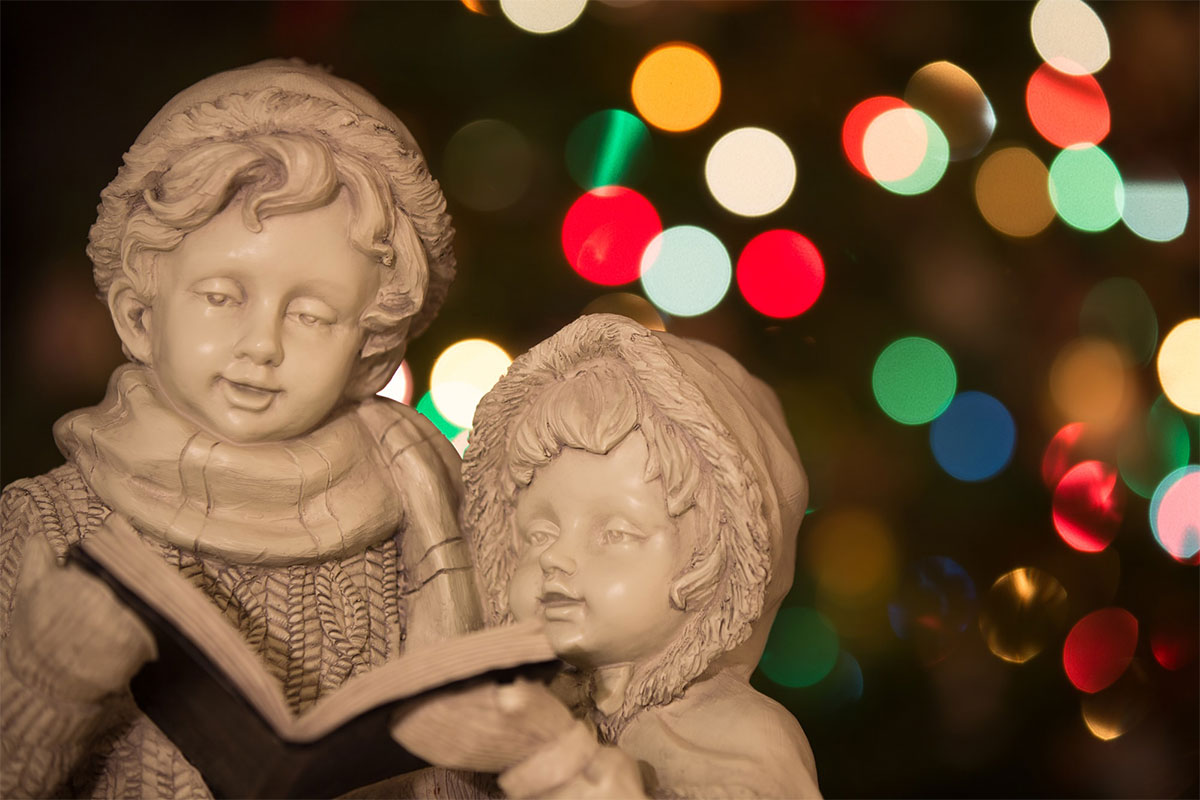
Christmas caroling is a great to share the joy with everyone around you during the Christmas season. Christmas music is everywhere in society, to the point that most radios play almost nothing else throughout the Christmas season but carols and other Christmas music. The enduring image of going caroling, of singing in groups outdoors either at an event or going door to door to other houses persists to this day. And yet, somewhat surprisingly, Christmas caroling has had a long and troubled past.
The earliest things that would be called carols actually had nothing to do with Christmas. As a word with a definition meaning "to dance to something", carols were originally celebratory songs from pagan festivals. Celebrations of the winter solstice, and in fact for all four seasons, were common, and carols were the songs sang and danced to at that time.
When the Christian holiday took over the pagan solstice celebration, they created, a series of songs for the populace that happened to be in all Latin, which most common folk could not sing or even understand. Because of this, celebrations and songs of Christmas slowly began to fade, until St. Francis of Assisi'`s nativity plays in the 1200s. These plays included canticles, songs that explained the Nativity scenes. Several of these songs had non Latin lyrics, which caused them to become popular as sing-alongs and spread throughout Europe.
The English speaking world lost carols and singing for nearly 2 centuries starting in the 1600s, when the Puritan movement saw celebrating and religious song as a sin. With the help of Parliamentary law, carols were banned in 1647. It would take over 200 years for the ideas of celebration, joy, and song to overturn this grim view of the holiday.
Today, Christmas music and carols are more popular than ever. New songs and versions of songs appear each year, and good old fashioned caroling is a popular family event through the holiday times.